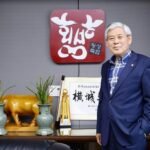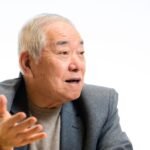Hanwha Group headquarters in Seoul (Courtesy of Hanwha)
South Korea’s No. 7 conglomerate Hanwha Group will expand its restricted stock units (RSUs) to encourage more employees to have interest in the company’s long-term growth and stock value.
RSUs are granted as a form of employee stock compensation. They are issued through a vesting plan after employees achieve a certain performance milestone or work for a particular length of time. The units have no tangible value until they are vested.
The group said on Thursday that it will grant RSUs to those who want the units among 1,116 team chiefs of its parent company Hanwha Corp. and four major affiliates – Hanwha Aerospace Co., Hanwha Systems Co., Hanwha Ocean Co. and Hanwha Solutions Corp.
Some 88% of the team chiefs responded in a recent survey that they would opt RSUs instead of the existing bonus based on their position, the group added.
The expansion of RSUs will boost employees’ motivation to make important decisions with a long-term view and step into a leadership role in the execution of key strategies, the group said.
The parent Hanwha and the four affiliates became the first listed companies in Korea to introduce RSUs in 2020.
The firms abolished the performance incentive system for their chief executives and senior executives and have granted the stocks instead, with a five to 10 vesting period.
For team chiefs, the companies will give them the right to choose between RSUs and the bonus based on their position. They can earn the stocks after a three-year vesting period.
The RSU system has provided the employees with equity and cash linked to the stock price in a 50:50 ratio.
The group said it forecasts that the expansion of RSUs will build a foundation for employees to take ownership at work and focus on each company’s long-term growth in value.
By Hyung-Kyu Kim
khk@hankyung.com
Jihyun Kim edited this article.















